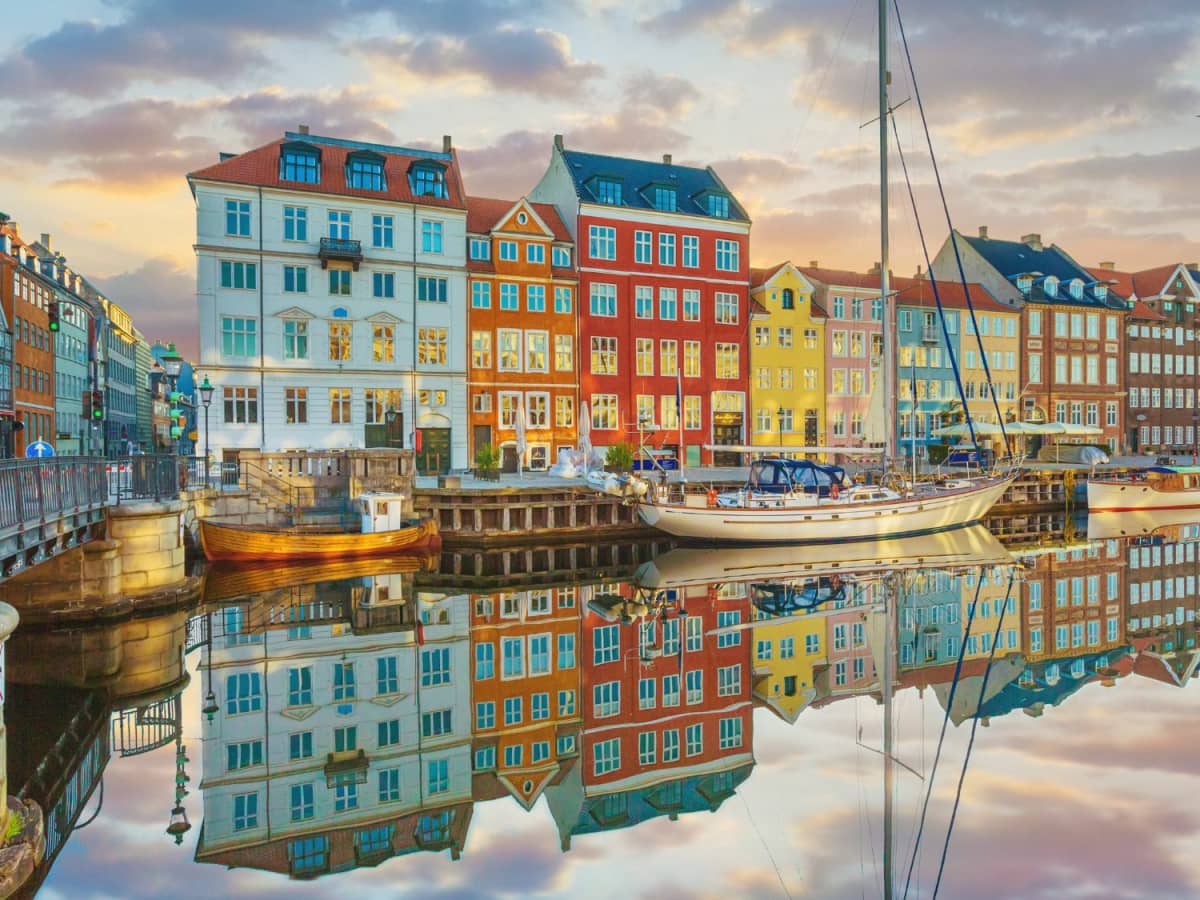Navigating Copenhagen: A Guide for International Students to Danish Culture
Moving to Copenhagen as an international student opens up a world of opportunities. From the directness of Danish communication to the unwritten rules of hygge (coziness), understanding the cultural nuances will help you settle into this vibrant city.

Moving to Copenhagen as an international student opens up a world of opportunities and cultural experiences. With nearly 13,000 international students enrolling in Danish universities every year, you're not alone in this adventure! Copenhagen, known for its high quality of life and welcoming atmosphere, is a vibrant hub of diversity where you'll quickly notice a mix of old-world charm and cutting-edge modernity.
But as you settle into this dynamic city, it's essential to understand the cultural nuances that shape everyday life here. From the directness of Danish communication to the unwritten rules of hygge (coziness), there are a few things that might surprise you. This guide will help you make the most of your time in Copenhagen by sharing insights into Danish norms, campus culture, social life, and practical tips for adapting to your new home.
Direct Communication
Danes value honesty and straightforwardness in communication, and they tend to say exactly what they mean without sugar-coating. This directness can come across as blunt if you're used to more indirect forms of communication. For instance, constructive criticism is usually delivered clearly and openly, and the feedback may seem more critical than you're accustomed to. However, this isn't meant to be offensive; it's rooted in the belief that transparency fosters trust and helps everyone improve.
When expressing opinions or giving instructions, Danes usually go straight to the point without unnecessary pleasantries. In social interactions, you'll find that small talk is less common, and conversations often start with the topic at hand. This directness can be refreshing once you understand the intent behind it.
Privacy and Personal Space
Danes typically cherish their personal space and privacy. Public interactions are often reserved, and starting a conversation with strangers isn't common. You might notice that people prefer to sit alone or maintain some distance in public places like buses and cafes. This isn't a sign of unfriendliness but rather a cultural preference for solitude and personal space.
However, if approached politely and respectfully, most Danes are very friendly and willing to help. They appreciate it when people recognize their need for privacy. It's best to approach a local by starting with a polite greeting, and if you need assistance, a direct yet considerate request is often well-received.
The Law of Jante (Janteloven): Equality and Modesty
The concept of janteloven (the Law of Jante) is deeply ingrained in Danish society. Coined by Norwegian-Danish author Aksel Sandemose in his 1933 novel, A Fugitive Crosses His Tracks, it emphasizes modesty and discourages boasting about personal achievements. The ten rules of janteloven highlight humility, suggesting that individuals should avoid thinking they're better than others. The main takeways are:
- Avoid Boasting: Downplay personal achievements and express them humbly.
- Treat Everyone Equally: Approach people with respect, regardless of their status or occupation.
- Share Credit: Recognize team efforts and contributions rather than emphasizing individual success.
In practical terms, Danes typically don't brag about their successes, wealth, or social status. There's also a strong focus on equality, so it's best to avoid comparisons that imply a hierarchical status, whether related to work, education, or income. In conversations, Danes often downplay their achievements and avoid dominating discussions, fostering a sense of mutual respect.
Education and Campus Cultures
In Denmark, the relationship between students and teachers is typically informal. Professors often prefer to be addressed by their first name, reflecting a culture that values equality and approachability. This encourages open dialogue, and students are expected to actively voice their opinions during lectures, seminars, and office hours. For international students, this informal atmosphere can initially be surprising, especially if you're used to a more hierarchical or formal academic environment.
The Danish education system emphasizes self-directed learning, meaning you'll spend a lot of time studying independently or in groups. Lectures often provide an overview of key concepts, but you'll need to delve deeper through independent reading, research, and assignments. Group projects are also a significant component of many courses. They encourage collaboration and problem-solving skills. The emphasis is on quality rather than quantity, and the grading criteria often include creativity and analytical thinking. Academic writing is also a critical skill, so make sure your papers are well-structured and clearly argued.
Study-Life Balance
Danes highly value work-life balance, and this ethos is reflected in the academic schedule and overall approach to education. University timetables are designed to accommodate personal time and well-being. For instance, classes often have shorter hours than in other countries, giving students more flexibility.
You'll also find that extracurricular activities, sports, and social events play a significant role in student life. Universities frequently organize events to promote social interaction and relaxation. Taking breaks, pursuing hobbies, and spending time with friends are encouraged, so don't feel guilty about stepping away from studies to recharge.
Social Circles
Danes often have tight-knit social circles and place great value on longstanding friendships. Many Danes form their closest friendships in childhood or during school years, which means their social groups are relatively fixed. As a result, making new friends can take time and patience, especially if you're new to Denmark. Initially, Danes might seem reserved or distant, but this isn't a reflection of unfriendliness.
Once you become part of a social circle, you'll likely find Danes to be loyal and welcoming friends. One of the best ways to integrate is by joining student clubs, organizations, or activities where you'll meet people with similar interests. Universities in Copenhagen typically have a broad range of student organizations, from sports teams to cultural societies, making it easier to find like-minded individuals.
Hygge
Hygge, often translated as "coziness," is a central part of Danish culture and social life. It describes the feeling of warmth, comfort, and relaxation that comes from sharing simple pleasures with others. This can take many forms, but typically involves gathering in small groups for relaxed, intimate events like dinner parties, board game nights, or movie marathons.
Creating a hygge atmosphere involves low lighting (think candles or soft lamps), comfortable seating, warm drinks like tea or mulled wine, and good company. It's a time to unplug from stress and enjoy the moment with friends or family.
In Copenhagen, you'll find many cafes and venues that aim to embody hygge. Socially, it's a good idea to familiarize yourself with this concept and perhaps host your own cozy gatherings once you establish your social circle.
Alcohol and Socializing
Alcohol plays a significant role in Danish social life. Danes enjoy drinking socially, and bars, parties, and gatherings often involve beer, wine, or stronger spirits. For students, Friday bars (fredagsbar) are common on university campuses, where classmates unwind with drinks after a long week.
While drinking is popular, non-drinkers are generally respected. If you prefer not to drink, politely declining a drink or opting for a non-alcoholic option is perfectly acceptable. Danes appreciate honesty, so a simple "no thanks" will suffice.
Biking Culture
Copenhagen is known as one of the most bike-friendly cities in the world, with nearly 50% of residents cycling to work or school daily. The city's extensive network of bike lanes, dedicated traffic signals, and bicycle parking facilities make biking the most efficient mode of transportation.
Always cycle in the designated bike lanes or paths. If there isn't one, stay to the right side of the road. Use hand signals to indicate turns or stops. Extend your left hand to signal a left turn, your right hand for a right turn, and raise your hand vertically to signal stopping. Follow traffic signals and road rules, just like any other vehicle. And remember, it's mandatory to have front and rear lights on your bike at night, and wearing a helmet is highly recommended for safety.
Conclusion
Moving to Copenhagen as an international student can be an exciting and rewarding experience. By familiarizing yourself with the local culture and customs, you can make your transition smoother and enjoy all that Denmark has to offer.
What's the best way to do so, you ask? Live with a Dane! If you're looking for a roommate in Copenhagen, you can learn more about available listings on Hemavi and get matched with a roommate based on your interests and preferences.




Comments ()